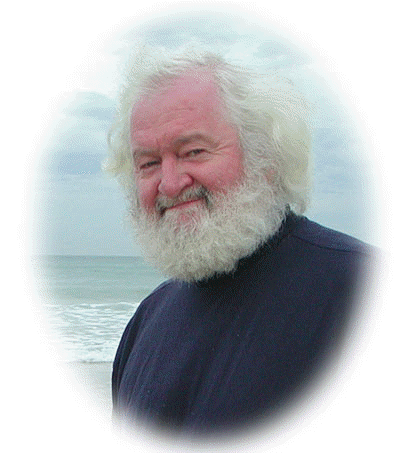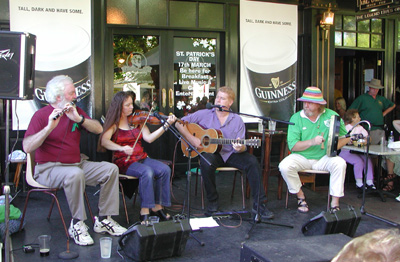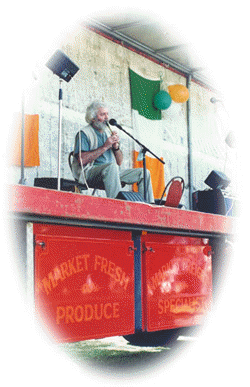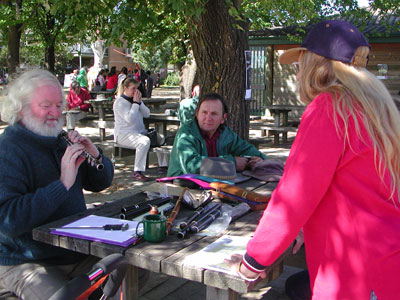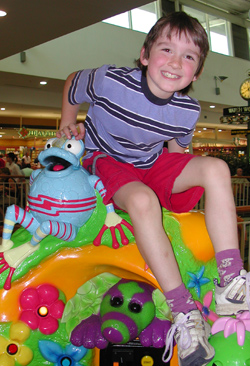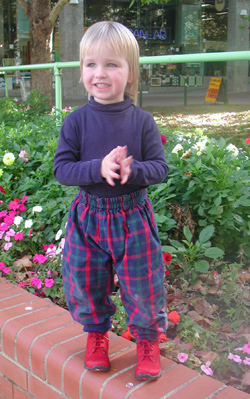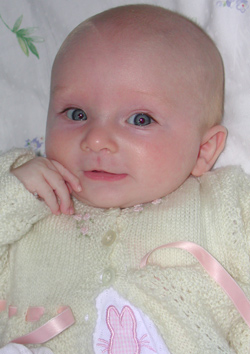Terry McGee - flute makerTerry McGee has been at times instrument maker, broadcaster, recording engineer, instrument repairer, musician, music teacher and project manager, though in the last few years his focus has narrowed to just flute making, and with a passion!
Terry considers himself very lucky to have landed a trainee Technical Officer position with the Research School of Physical Sciences at the Australian National University upon leaving school. Working in one of the premier scientific research institutes in the country provided him with a range of manual and technical skills, and a first-hand understanding of how research is conducted. All of this would come in handy right throughout his working life. He soon developed a reputation for innovative and elegantly simple solutions to tricky problems, and an ability to translate incompletely expressed wish-lists into operating technology. It was for these reasons he was assigned to work with visiting arts fellows, and to build and install dome control equipment for one of the University's massive telescopes. He went on to join the Research School of Earth Sciences as a Senior Technical Officer, assisting in the design and construction of mass-spectrometry equipment used to analyse moon-rock samples from the Apollo mission. Since being declared Radio Trades ACT Apprentice of the Year way back in 1969, Terry has built a number of broadcast and recording studios for his use and for community radio stations. Terry has been involved in community radio since its inception in Canberra in the early seventies, in programming, engineering and administrative roles. He received a Public Broadcasting Association of Australia "Golden Reel Award" for Best Technical Contribution to the sector. He is a foundation and Honorary Life Member of Canberra's music and arts station, ArtSound FM, where he worked three days a week for many years as its Chief Engineer and Development Manager. He was also folk music convener for the station and contributed regularly to its programming for 15 years. He was responsible for developing and maintaining the sophisticated digital multitrack recording, computer-based editing and CD premastering suites in use at ArtSound studios. Terry is also one of Canberra's most respected recording engineers, with 30 years experience. He has collections of recordings of folk clubs and folk festivals lodged with the National Library of Australia and the National Film and Sound Archive. Some of Terry's previous positions include being the Folklife Curator of the National Film and Sound Archive, and sound preservation of the oral history collection of the National Library of Australia.
Terry's instruments have received several awards and have been exhibited at Beaver Galleries in Canberra, Berrima Galleries, the Craft Council of the Australian Capital Territory, and at an exhibition of instruments by the Australian Association of Musical Instrument Makers. His work is illustrated in Michael Atherton's book on musical instrument making in Australia, "Australian Made - Australian Played" (1990). Terry also has a long association with instruments of the harpsichord family including carrying out a renovation of an instrument on behalf of the Early Music Council of Canberra. It was not until he got around to creating an Internet web-site in the mid 1990's that he came to notice and later prominence in the flute-playing world at large. His comfortable stock of instruments quickly vanished, to be replaced by a rather-too-long waiting list. When it became clear that this situation wasn't going to cure itself, he smoothly detached from other activities to concentrate just on flute making, research and restoration.
And, a firm believer that different flutes benefit different players, he offers the widest range of models available anywhere in the world, and a range of embouchures to suit any lip. Terry is also the world's most intensive researcher of flutes from the 8-key period, with a lot already published on his web-site, and a lot more in preparation and to come. The National Library of Australia recognises the importance of Terry's website by preserving it for posterity in its Pandora Archive. Terry is involved in an international effort to explore the work of forgotten makers like Siccama and Clinton, with the aim of correcting historical records distorted by professional jealousy. Also on the go is a major project involving the Powerhouse Museum in Sydney and the University of Sydney Physics department. Funded by the Australia Council for the Arts and the Australian Research Council, the project is to develop computer modelling software for flute design. Terry's restoration activities mirror his developments in his own instruments. Instead of crudely forcing repairs onto resisting instruments, Terry seeks out the causes for the problems and treats sources, not symptoms. Some of his solutions for common problems are depicted on the web site. And as if he hasn't already enough to keep him occupied, Terry gets called on for the maintenance and repair of Canberra's 55-bell carillon, a job which dovetails nicely with his engineering background. During 2004, Terry conducted a complete revision of his flute-making processes, with the twin aims of making the process more efficient and of making the very best flutes possible. The new process is set out in this web site, and addresses every issue head on, ensuring the end product is ultimately stable, accurate and vibrant. Terry says with confidence: "I am sure that no-one, anywhere, makes a more carefully considered flute." There are a number of additional steps in the new process, but the increase in time required is to some extent offset by new and improved machinery and specialised tooling. Terry is meticulous in applying his knowledge and experience to the challenges and problems of instrument making and enjoys constantly working on perfecting his designs and instrument making techniques. Terry has for a long time been passing his knowledge and wisdom on to others, through his web site and the woodenflute and flutemakers email lists. In the last few months, he's taken this to a new level with the induction of his first trainee flutemaker, ensuring that his manual, practical and organisational skills are also passed on. Currently, Terry is working hard to get his waiting list down to more acceptable proportions. His goal is to once more have some popular models in stock, with custom flutes taking only as long as the process of making them demands. He's pleased with progress towards that aim. On the personal front, Terry also enjoys spending time with our seven year old son, Ciaron, and our three year old son, Breandan, and 8 month old daughter, Roisin. Jesse Rowan, August 2005
|
